Let's Talk Mental Health In Rodeo
Let's Talk Mental Health In Rodeo
It’s Bell Let’s Talk Day in Canada and in the rodeo community, many will have Ty Pozzobon on the mind today.
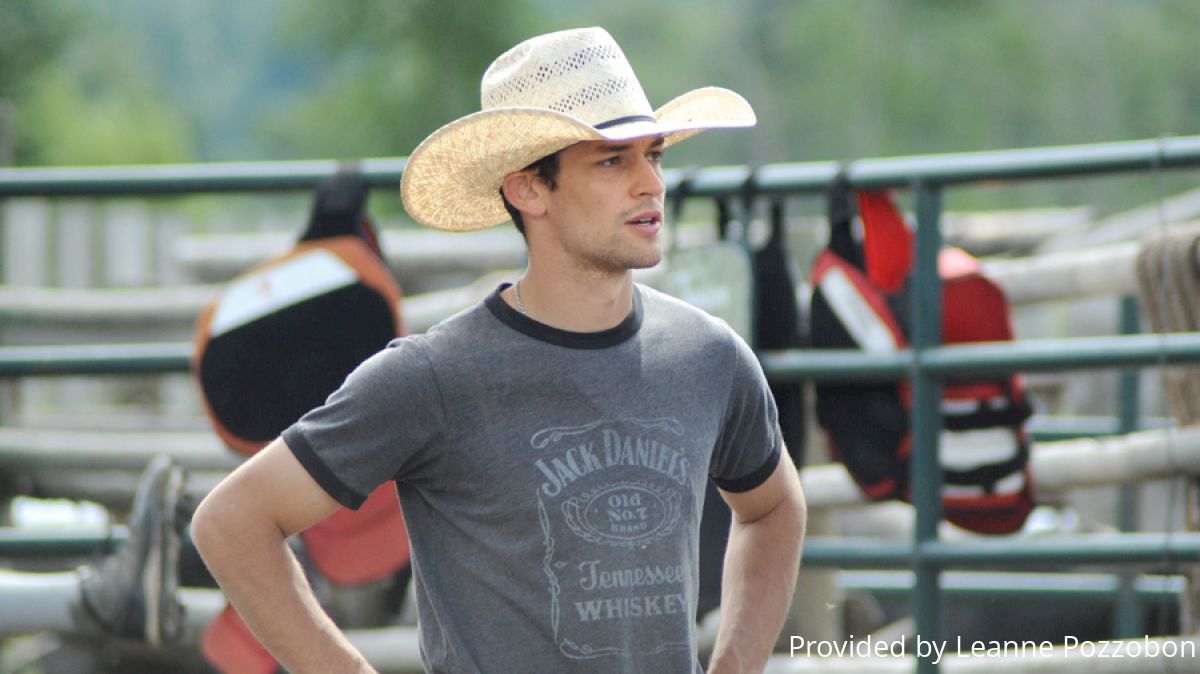
It’s Bell Let’s Talk Day in Canada and the rodeo community has Ty Pozzobon on the mind today. Bell Canada created this initiative, making Jan. 30 the day where the conversation around mental illness is thrown wide open in hopes of removing the stigma around the conversation, increasing mental health care and access to that care, expanding on mental health research and engaging in workplace safety practices with mental health in mind.
The world of rodeo can be deeply affected by each of those initiatives, so today, we will explore just how far we’ve come in the sport’s own mental health.
Story by Kirsten Gjerde
"Immortality is to live your life doing good things, and leaving your mark behind." - Brandon Lee
It's been just over two years since the death of Ty Pozzobon. To many in the rodeo world, it feels like yesterday.
Ty was larger than life, and one of the most talented bull riders of his generation. On Jan. 9, 2017, the Canadian bull rider took his own life due to the mental health side effects of repeated head traumas.
Ty was the first cowboy in history to be diagnosed postmortem with Chronic Traumatic Encephalopathy. FloRodeo touched more on the details of CTE in an earlier article HERE.
What Ty accomplished in his short career was impressive, however, his legacy may prove to be the largest impact any bull rider has had on the sport.
The PBR’s Technological Steps Forward
The Professional Bull Riders (PBR) have known about the severity of concussions and implemented testing long before Ty's passing. In 2012, they introduced the use of VSR Sport, a computerized evaluation system to asses riders ability to get back on their bull.
The machine uses balance assessment as the beginnings of creating an individualized concussion management program.
According to the public data of the PBR Injury Reports, from Jan. 2018 to Jan. 2019 approximately 25 percent of reported injuries were concussion based. Only one rider with a suspected concussion returned to compete in a further round of the same event, but 37 percent were questionable for the following event (pending assessment) and the majority of concussed riders were sidelined for competition until at least one more event had passed.
The Canadian Professional Rodeo Association’s Work On The Ground
Brandon Thome of the Canadian Pro Rodeo Sports medicine team is a familiar face to rodeo athletes north of the border. He gave us some information on the process their team uses following a head injury, and not just for bull riders.
After the initial injury, an evaluation by a practitioner takes place and the athlete is sent for follow up with a sports medicine physician. When they are symptom-free they will start the "return to participation" or "return to ride" protocol.
The week-long "return to ride" protocol is designed to ramp up physical activity in stages of difficulty. If the athlete passes each stage and remains symptom-free, he or she progresses to the next stage until the protocol has been completed successfully and they are cleared for competition.
If the athlete is unable to complete a stage without symptoms returning, they wait until they are symptom-free again and begin the protocol anew. If symptoms remain after this, the athlete is referred for further evaluation and treatment options.
He reiterated the possible repercussions of competing with untreated head trauma.
“Concussions are one of the most controversial medical issues in sport right now,” said Thome. “The repercussions of competing with head trauma can be minor to catastrophic.”
“Second impact syndrome is our biggest worry. Second impact syndrome (SIS) occurs when the brain swells rapidly, and catastrophically, after a person suffers a second concussion before symptoms from an earlier one have subsided. It causes dangerous brain swelling and bleeding that can cause death or permanent disability.”
The Ty Pozzobon Foundation’s Impact
The impact of rodeo athletes having to be benched and temporarily unable to support themselves and their families has been lessened by the support of the Ty Pozzobon Foundation. Immediately after Ty's passing, the not-for-profit was set up to bring awareness to the effects of head injuries and support athletes who are sidelined.
Not only does the organization offer financial support for riders, but it also raises awareness of the seriousness of concussions and provides access to valuable resources for those dealing with the mental and physical side effects post-concussion.
In two years the foundation has raised more than $250,000 and released two self-funded educational videos to promote the health and well-being of rodeo athletes. The first primarily focuses on concussions while the second is brings awareness to mental health as a whole.
View The Videos Here:
Video One: Concussion Awareness
Video Two: Mental Health
When asked if he's noticed a difference in the number of athletes with suspected head injuries sitting out events since the tragedy of 2017, Thome stated that he has noticed an increase in the number of athletes now treating rodeo as a professional sport.
"Athletes are starting to realize that if they are injured, it is real hard to win or make any money,” said Thome.
This goes for all injuries, but with the new awareness of mental health and the deadly repercussions of head injuries, the next development could be the most important of all.
“In the case of concussions, rodeo athletes are taking head injury a lot more serious,” said Thome. “They are sitting out when they need to sit out and more importantly they are starting to police each other and make sure their buddies and traveling partners are okay."
The Legacy And Awareness Continues
Even with the go-ahead from association medical professionals, some riders are choosing to air on the side of caution. Without the support and education of outlets like the PBR and their medical teams, the Canadian Pro Rodeo Sports medicine team and the Ty Pozzobon Foundation this would not be possible.
The rodeo world lost a great human being two winters ago, but his passing has not been in vain and has brought international recognition to an issue we did not realize we were facing and the implementation of medical protocols to continue helping those affected by it. Through awareness, education and support Ty's legacy will continue in the sport of rodeo.
Related Content
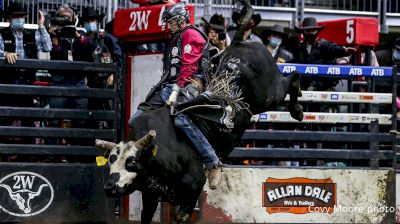 Canadian Finals Rodeo: Check Out This Year's Top Contenders
Canadian Finals Rodeo: Check Out This Year's Top ContendersOct 21, 2022
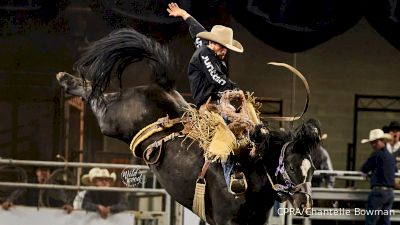 Regular Season Ends With Shakeup, Field Packin' For Canadian Finals Rodeo
Regular Season Ends With Shakeup, Field Packin' For Canadian Finals RodeoSep 26, 2022
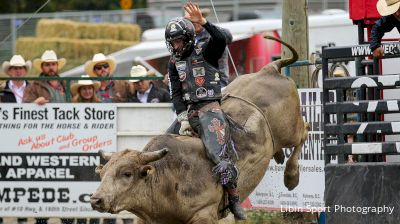 Big Moves In British Columbia As 2022 Canadian Pro Rodeo Season Winds Down
Big Moves In British Columbia As 2022 Canadian Pro Rodeo Season Winds DownSep 8, 2022
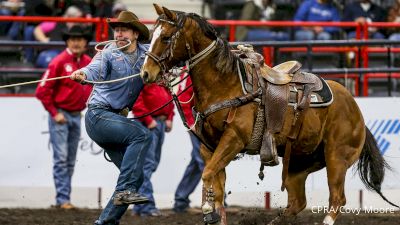 Standings Races Tighten As Canadian Finals Rodeo Nears
Standings Races Tighten As Canadian Finals Rodeo NearsAug 24, 2022
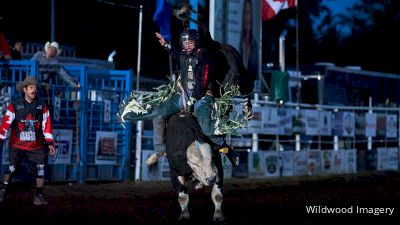 Jordan Hansen Makes Big Move With Two Wins On Canadian Soil
Jordan Hansen Makes Big Move With Two Wins On Canadian SoilAug 17, 2022
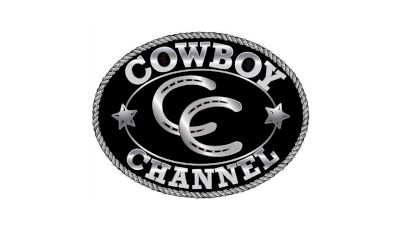 Canadian Pro Rodeos Move To The Cowboy Channel
Canadian Pro Rodeos Move To The Cowboy ChannelApr 22, 2023
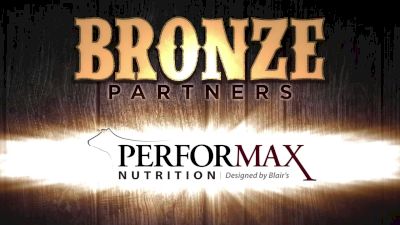 Replay: Maple Leaf Circuit Finals | Dec 3 @ 7 PM
Replay: Maple Leaf Circuit Finals | Dec 3 @ 7 PMDec 4, 2022
 Replay: Maple Leaf Circuit Finals | Dec 2 @ 7 PM
Replay: Maple Leaf Circuit Finals | Dec 2 @ 7 PMDec 3, 2022
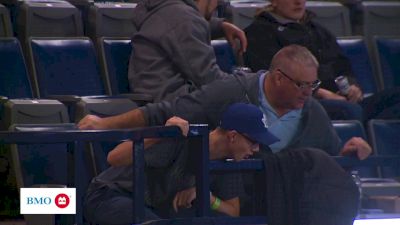 Replay: Maple Leaf Circuit Finals | Dec 1 @ 7 PM
Replay: Maple Leaf Circuit Finals | Dec 1 @ 7 PMDec 2, 2022